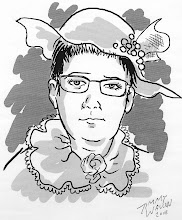This
year marks 100 year Anniversary since
Archduke Franz Ferdinand
of Austria -Hungary and his wife were assassinated in Sarajevo. An event that marked the beginning of the worst catastrophe that humanity had yet seen - World War 1. For this reason, the Kulturparken Småland (the Kronoberg county Museum) runs an exibition about the the outbreak of the war and how it directly and indirectly
affected the population in Växjö, KronobergCounty by the food shortages and
high prizes on food.
The exhibition runs until November 11th.
The Outbreak of the war reported in
the somewhat-German friendly local newspaper
Smålandsposten.

Sweden, together with the other Nordic
countries declared themselves neutral.
The Home Guard
was mobilized shortly after the outbreak of war conscript and veteran reserve set.
Their equipment
was apparently not
of the latest model. Triangular felt hats l had
probably been
poor protection against bullets and grenades and the quality of the weapons also left a lot to be desired.
In Autumn of 1914 the swedish municipalities
were given the
right to establish Foad Boards to regulate the distibution of food . In Växjö one was established in December 1914. The first meeting was held on December 21 In February
1916 The last meeting was
held in 1921. Its
task was to obtain the foods needed for municipal
supply being stored and distributed properly , and to ensure that current regulations for food rationing were followed.
Below a Record book from the Vaxjo Food board from 1917.

Despite rationing there were food shortages and food speculation so
called "profiteering",a particularly difficult
situation was in the winter of 1916-1917. In connection with the Russian February Revolution in March
1917 there were demonstrations
and even food
riots in several parts of the
country. In Växjö sometimes women at the entrance
to town and stopped the farmers carts with
groceries and followed them into
the city to
make sure they were sold to the city's population. In April 23rd
1917 The workers
held a meeting in the People's House then
about 1,000 people marched to the Main Square where engineer
Ernst Johansson read
out the resolutionthe meeting had adopted for
the mayor of Växjö Bergendahl who listened to their demands the People then sang the song "The Sons
of Labour” after which
they cheered for the
mayor.
Here a banner probably
used by the demonstrator tion April 23, 1917. The texts on it
says “More Bread End food speculation”.

On April 22 1917 , had some of the conscripts of the Kronoberg regiments twelfth company refused
to show up at a church service Ten of the conscripts were then arrested and
put into custody . Later that day conscripts and some members of the public went to the the
Bäckaslövs school then used as military camp for Conscripts where the company was located to
get the arrested free. Colonel Cavallin ordered
the conscripts to return to the barracks the crowd dispersed only after "military pressure" had been used.













